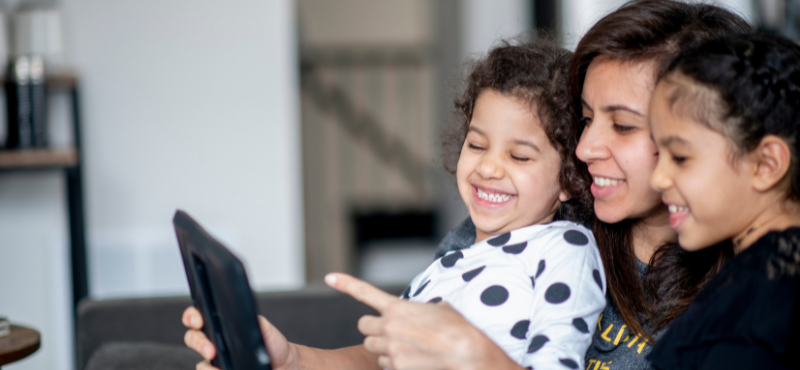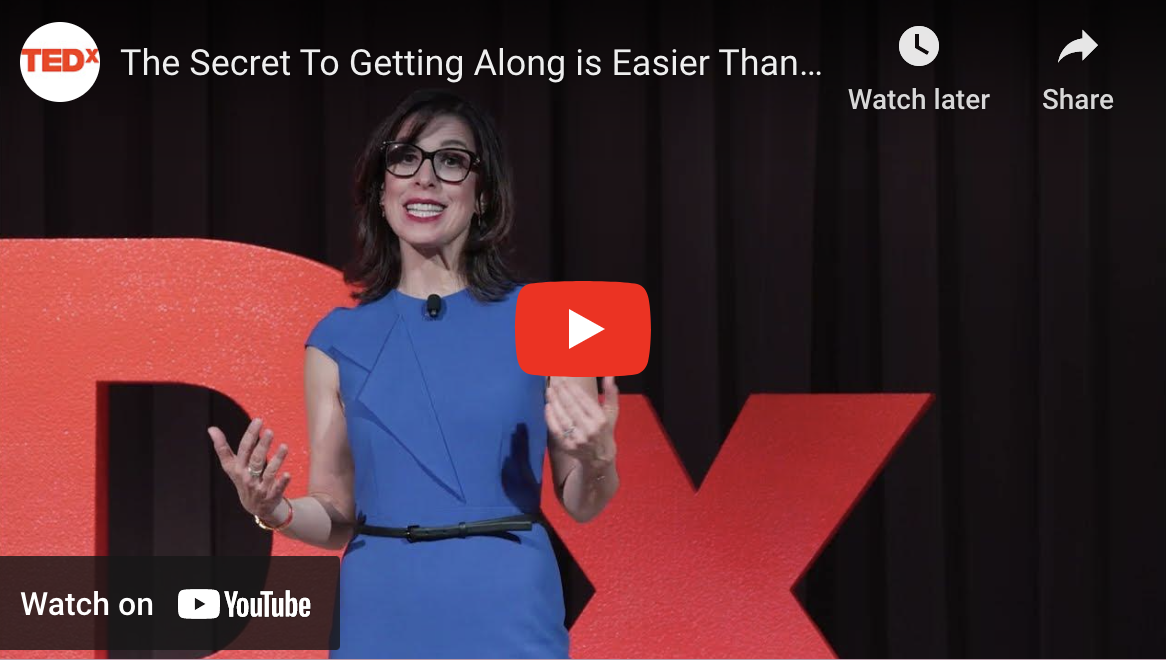I’m a Long Island girl and a product of a loving, long term marriage (52 years!). If you had asked me at 13 where I saw myself in 35 years, never would I have guessed this reality. Seventeen years after I said “I do,” I’m divorced, with 3 amazing kids (twin boys 9, daughter 14), a condo in New Jersey and am long distance co-parenting with their father who lives across the country — literally — in Los Angeles.
I’m sure you have lots of questions as to how and why this came about. The quick version: he’s there for love, family, and work. As much as you may not envy my situation (much of the regular parenting duties fall on me), I don’t envy his position of having love, responsibility, and obligation on both sides of the U.S.
I did not always feel so at peace with this long distance co-parenting dynamic. I was resentful and judgmental and stressed out! It took time and work to make it as functional as it is today, but I think we are doing a pretty good job of it.
Here are a few of my tips for navigating long distance co-parenting:
1. Let go of the resentment
I had a lot of resentment when my ex started spending more time in California. I resented that he had what I perceived early on to be incredible freedom when he wasn’t on this coast.
At the time, I just assumed being apart from us and falling in love equaled freedom. I was resentful that my freedom was limited. Dating is hard enough when trying to match up parenting schedules, let alone one that is not predictable and planned out in advance. I also naturally felt resentful that he found love as I continued the gruesome path down the world of dating apps (more on this on my business blog @regardingdivorce). Carrying this resentment, which presented itself as hostility and anger, served nobody’s best interests.
Ultimately, I had to let go of the resentment and accept — truly accept — the realities of our situation in order to create a more positive and productive working dynamic.
If I wanted our long distance co-parenting to work, I had to forgive what had transpired and remind myself we are both entitled to happiness, and once individually happy, we’ll be better versions of ourselves for each other and our children. I had to discover myself and my own capabilities, as a woman and as a mother, to gain the self-confidence that was lost in our partnership. I accomplished this both independently and with a therapist, and a lot of self-care – doing the things that I enjoyed and that made me feel good. I also took a long hard look at how I felt in my marriage, and how I feel about the opportunities ahead.
Once I gained excitement about the future and began taking steps towards it, my resentment started to dissipate. Over time, I became a better version of myself, a better parent for my children, and a better partner for my ex.

2. Communication is key
Consistent and open lines of communication are essential to successful long distance co-parenting. Both parents and children benefit from regular connections — be it emails, texts, phone calls, or video calls.
For the long distance co-parents, email is a great way to keep track of any plan changes or updates; it is time-stamped and has a clear paper trail should you ever need to refer back to it. There are also many apps (WeParent and Our Family Wizard to name two) that now serve as a neutral point of exchange between former couples to document conversations, scheduling and even to exchange money. Voice and video calls enable us to have that live connection with our kids that just can’t be achieved in writing.
The parent who is not regularly present might feel like they’re missing out on some key events in their kids’ lives due to the distance. Not being able to be present physically should not preclude them from being present emotionally.
I encourage all co-parents during their off time, whether in the town over or the other side of the country, to schedule time, set alerts, or just habitually check in regularly to remain a constant part of their children’s lives.
Maintaining (and regularly viewing) a joint shared calendar is imperative – not just for scheduling parenting time, but to keep both parents abreast of sporting events, doctors appointments, tests or quizzes, social plans, etc. Seeing items on a schedule can prompt questions for meaningful dialogue with children.
3. Ask for or accept help when you need it
Being responsible for most of the regular parenting time can be extremely stressful and anxiety-inducing. If your kids are old enough to be left alone, you can likely find time more easily to step away and decompress.
But if you have younger kids that require an adult present, I urge you to take some time, make some calls, and have a solid list of friends, neighbors, family or sitters that you can call on when you need a break. Nobody’s free? Find a quiet place to just step away from the situation to calm and recenter yourself.
Remind yourself that you CAN handle it all — but we all need a little time to ourselves, to recompose — to be fresh and ready to reenter with a clear mind.

4. When you have a break, let go!
As the primary parent In a long distance co-parenting situation, it’s easy to have some control issues when the children go with their other parent. The calendar helps with any scheduling obligations, but there are so many other factors — what they eat, device time and content, what other activities they’re doing, and simply the parent-child dynamic that might consume your mind during their time away.
Assuming there are no safety concerns, you have to relinquish control here. You can and should inform your ex of any major concerns or restrictions, but this is their time to parent. Let them take over.
When the kids are away, the sudden shift to a quiet and empty home can be jarring. Think of this time as a break. Plan what you want to do in your free time – this is your time to focus solely on you. Plan a trip, see friends, take lots of naps, relish the extra time you have in the mornings to only focus on yourself, watch your shows and eat on the couch while you do it, etc.
To me, this time has become the best byproduct of divorce. And though I miss my children and stay in contact with them when they’re with their dad, this time enables me to hit the refresh button and reenter my parenting time with renewed vigor.
5. Recognize and appreciate the experiences they have without you.
There are positives to long distance co-parenting! With an ex in California, my children get to experience things they likely never would with me.
While they may complain about the daily hikes and bike rides they are “forced” to endure, I know that the fresh air and activity are precisely what they need between school sessions and device dependency.
He takes them to amusement parks, beaches and local attractions, they have an extended family to love and be loved by, and this summer they get a two-week Hawaiian vacation (and I get two weeks of me time!)
While this is not a lifestyle they chose, and our long distance co-parenting dynamic does have its issues, with continued attention, the right attitude, support and conversation I’m hoping my children will witness a healthy relationship between their father and me, and see that we have worked together to give them a balanced life, filled with diverse experiences, unwavering support, and of course, lots of love.

Rachael Entine
CDC Certified Divorce® Coach
Founder and Director, Regarding Divorce
Divorced mom to three amazing kids and CDC Certified Divorce Coach® supporting Clients
through every aspect of the process, specializing in the transition and recovery.
Your trusted, rational thinking partner as you tackle the biggest obstacles ahead of you. Get
unstuck, gain forward momentum and make progress towards a quick and cost efficient
resolution. Regain your confidence and sense of self and get your (much deserved) life back on
track faster. There is a good life ahead, and I will help you get there.
See my website, www.regardingdivorce.com for more information and to set up a free, no-obligation discovery call, and follow me on Instagram @regardingdivorce for quick tips for
success.



FOLLOW GABRIELLE

DISCLAIMER: The commentary, advice, and opinions from Gabrielle Hartley are for informational purposes only and not for the purpose of providing legal advice or mental health services. You should contact an attorney and/or mental health professional in your state to obtain advice with respect to any particular issue or problem.
- One Edgewater Plaza Suite 304, Staten Island, NY 10305
- 266 Smith Street, Brooklyn, NY 11231
Northampton MA
PHONE:
New York: (917) 905-4553
Boston: (413) 450-0420


